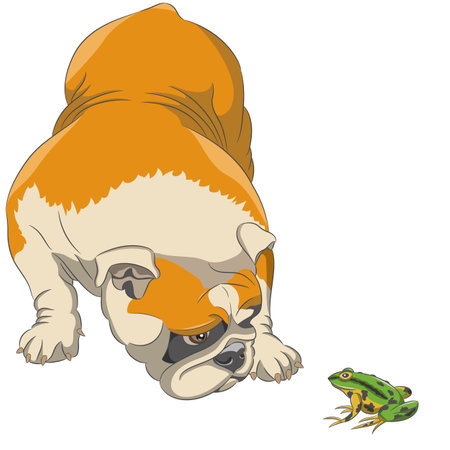Introduction: The Changing Landscape After Brexit
Since the UK’s departure from the European Union, commonly known as Brexit, there have been significant changes across a wide range of sectors. From agriculture to finance, British families and individuals have had to adapt to new rules and regulations. One area that has seen particularly notable shifts is the exotic pet industry—a sector that often flies under the radar but holds great importance for many households and animal enthusiasts across the country. Whether it’s families with cherished parrots, reptile lovers, or those fascinated by unique mammals, the impact of Brexit on exotic pet insurance and imports is now more relevant than ever. Understanding these changes matters not only for dedicated hobbyists but also for everyday families who want to ensure their beloved pets are safe, healthy, and properly insured under the new regulatory landscape. In this article, we’ll explore how Brexit has shaped the way exotic animals are brought into the UK, how it affects insurance options, and why these developments deserve attention from anyone passionate about animal welfare and responsible pet ownership.
2. New Import Regulations for Exotic Pets
Since Brexit, the process of importing exotic pets into the UK has undergone significant changes, impacting both private owners and professional breeders. The UK is no longer part of the EU’s harmonised pet travel scheme, meaning stricter border controls and a new set of rules now apply. These changes primarily affect paperwork, quarantine requirements, and overall import procedures.
Post-Brexit Changes in Import Rules
Before Brexit, bringing exotic pets like reptiles, amphibians or certain birds from Europe into the UK was relatively straightforward due to shared regulations across member states. Now, each consignment must comply with UK-specific import rules. Owners are required to obtain an import licence for many species, and the list of animals needing permits has expanded. This also means more frequent inspections at ports of entry, which can cause delays and added stress for animals and their owners.
Quarantine Requirements
The quarantine process has become more rigorous as well. Certain species must undergo health checks at designated facilities upon arrival in the UK. The length and conditions of quarantine can vary depending on the type of animal and its country of origin. For example, animals from countries outside the EU may face longer quarantine periods due to increased biosecurity concerns.
Import Paperwork: What’s Needed?
The paperwork involved in importing exotic pets post-Brexit is considerably more extensive. Below is a comparison table highlighting some key documents now required:
| Requirement | Pre-Brexit | Post-Brexit |
|---|---|---|
| Import Licence | Often not needed within EU | Mandatory for many species |
| Health Certificate | EU-wide standard | UK-specific certificate required |
| Quarantine Proof | Rarely required for EU imports | Required for high-risk species or non-EU origins |
| Customs Declaration | Simplified within EU | Detailed customs forms needed for all imports |
| CITES Documentation (for endangered species) | EU CITES permit accepted | Separate UK CITES permit required |
This added bureaucracy can be daunting for families hoping to bring a cherished pet into the UK or start an exotic animal collection. Its vital to consult with DEFRA-approved agents or seek guidance from reputable importers to ensure compliance and avoid costly mistakes.

3. Impact on Exotic Pet Insurance Policies
Since Brexit, the landscape of exotic pet insurance in the UK has shifted considerably. Previously, many insurers could rely on broad, EU-wide regulations and access to a larger pool of policies and providers. Now, with the UK operating outside those frameworks, both availability and cost of insurance for exotic pets have changed noticeably for British families. Many insurers have updated their policy terms to reflect new import restrictions and veterinary care standards. For example, you might find that coverage now excludes certain species or medical treatments that are harder to source post-Brexit. Some companies have even withdrawn entirely from the exotic pet market, making it more difficult for owners to find comprehensive plans. Additionally, premiums have generally increased, reflecting higher administrative costs and uncertainties regarding health risks associated with imported animals. As a result, families considering bringing an exotic pet into their home now need to pay closer attention to policy limitations—such as caps on vet fees or specific exclusions related to import documentation. It’s become essential to carefully read through policy updates and consult directly with insurers who understand these new challenges brought by Brexit.
Supply Chain Disruptions and Their Effects
One of the most immediate and tangible impacts of Brexit on exotic pet ownership in the UK has been the disruption of supply chains. Since leaving the EU, British importers, retailers, and individual pet owners have faced a range of new challenges when sourcing pets, specialist food, and equipment from Europe. These changes have led to delays at borders, increased paperwork, and higher costs—all of which affect both businesses and families who keep exotic animals.
For many years, the UK relied on smooth trade with EU countries for a steady supply of exotic pets such as reptiles, birds, and amphibians, as well as the specialist foods they require. Now, increased customs checks and additional documentation have resulted in longer waiting times at ports. This means that shipments of live animals are more likely to be delayed—a serious concern for animal welfare. Similarly, perishable foods and temperature-sensitive equipment can become compromised if held up in transit.
Shortages have also become more common. Some suppliers have reported difficulties sourcing specific brands or types of food—such as frozen rodents for snakes or specialised pellets for parrots—that were previously imported without issue. For families with exotic pets, this may mean having to switch to alternative products or face gaps in their animals’ diets.
The table below illustrates some typical disruptions experienced since Brexit:
| Aspect | Pre-Brexit Situation | Post-Brexit Changes |
|---|---|---|
| Delivery Times | 1-3 days from EU suppliers | Up to 7-10 days due to customs checks |
| Availability | Wide range from multiple sources | Limited stock, occasional shortages |
| Cost | No import tariffs; minimal extra fees | New tariffs; increased admin costs; higher retail prices |
| Paperwork | Simplified within Single Market | Complex forms required for every shipment |
These disruptions not only drive up costs—making it more expensive for families to care for their exotic pets—but also add uncertainty to everyday routines. For example, parents may now need to plan further ahead when ordering food or supplies to avoid running out. In some cases, local alternatives may not meet the same nutritional standards or species-specific requirements as their European counterparts.
5. Real-life Experiences from UK Exotic Pet Owners
Since Brexit, many exotic pet owners across the UK have faced new hurdles when it comes to insuring and importing their beloved animals. For example, the Turner family in Manchester shared how bringing home their African Grey parrot became much more complicated post-Brexit. They found that import paperwork was suddenly more extensive and delays at customs were common, leading to added stress for both the family and their new feathered friend.
Another case involves Ben, a reptile enthusiast from Bristol, who struggled to renew his specialist insurance policy for his collection of geckos. The insurer he’d used for years stopped offering coverage due to shifting regulations and uncertainty around animal health checks required for imports. Ben said, “I had to shop around far more than before, and even then, the premiums were higher and the cover wasn’t as comprehensive.”
For families like the Smiths in Kent, who regularly import rare amphibians, Brexit’s impact has meant working closely with specialist couriers and spending extra time ensuring all documentation is up to date. Mrs Smith explained that one missed form could mean weeks of delays at the border or even refusal of entry for their animals.
Some owners have banded together through online forums and local clubs to share tips on navigating new import requirements or finding insurers willing to cover exotic pets post-Brexit. Community support has been a lifeline, as individuals swap advice about which ports are processing animals most efficiently or how best to communicate with new regulatory bodies.
These real-life stories highlight not only the practical challenges but also the resilience and adaptability of UK exotic pet owners in response to Brexit-related changes.
6. Advice for Families Considering Exotic Pets
If your family is thinking about welcoming an exotic pet into your home post-Brexit, it’s essential to be well-prepared and informed. The regulatory landscape for importing and insuring exotic animals in the UK has become notably more complex since Brexit, so a cautious, research-led approach is now more important than ever.
Understand the Legal Requirements
Before making any decisions, check the latest UK government guidance on importing exotic pets. Rules can vary depending on species, origin country, and current biosecurity measures. Make sure you’re familiar with any licences or health certifications required—especially for reptiles, birds, or mammals listed under CITES (the Convention on International Trade in Endangered Species).
Choose Reputable Suppliers
Always work with licensed breeders or importers who provide transparent paperwork and comply with all post-Brexit regulations. This not only helps you avoid legal issues but also ensures your future pet’s welfare.
Budget for Extra Costs
Importing exotic pets now often involves additional customs fees, transport charges, and veterinary checks. Factor these costs into your budget from the outset. And don’t forget that insurance premiums may have risen due to new risks and administrative hurdles faced by insurers.
Find the Right Insurance Provider
Not all UK insurers will cover exotic pets—especially since Brexit introduced new uncertainties. Shop around and seek out specialist providers who understand the unique needs of exotic species. Read policy documents carefully; look out for exclusions related to illnesses, quarantine requirements, or importation irregularities.
Seek Support and Community Advice
Connect with established UK exotic pet owner groups online or locally. Forums, social media groups, and charities like The British Herpetological Society can offer real-world advice based on recent experiences navigating the post-Brexit environment.
Involve All Family Members
Bringing an exotic pet into your home is a big commitment—especially with today’s added complexities. Discuss responsibilities as a family and make sure everyone is prepared for the changes ahead.
Useful Resources
- The UK Government’s official guidance on importing animals
- The British Veterinary Association (BVA) for up-to-date animal welfare advice
- The British Herpetological Society for community support
By doing your homework and using trusted resources, your family can enjoy the adventure of owning an exotic pet while staying on the right side of the new rules brought by Brexit.

